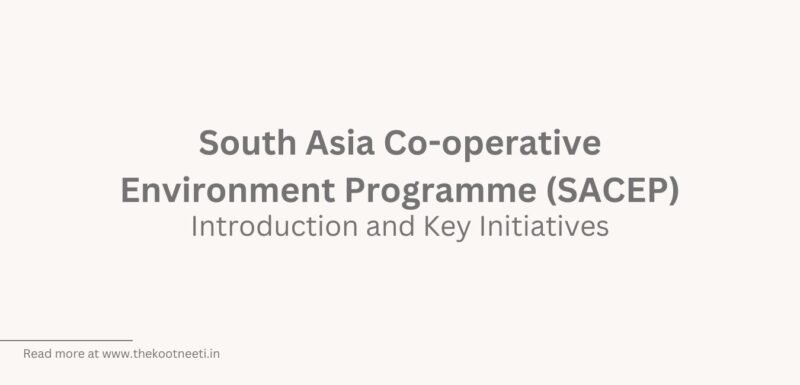South Asia Co-operative Environment Programme (SACEP): Introduction and Key Initiatives

The South Asia Co-operative Environment Programme (SACEP) is a regional organization that promotes cooperation on environmental issues in South Asia. It was established in 1982 and is headquartered in Colombo, Sri Lanka. SACEP is an intergovernmental organization that aims to promote the conservation and sustainable use of the region’s natural resources, and to address issues such as climate change, air and water pollution, and waste management. SACEP’s membership consists of eight countries in South Asia: Afghanistan, Bangladesh, Bhutan, India, Maldives, Nepal, Pakistan, and Sri Lanka. SACEP works to promote environmental cooperation through projects, research, training, and capacity-building activities.
Notable works by SACEP
The South Asia Co-operative Environment Programme (SACEP) has undertaken a number of projects and initiatives in the South Asian region to address environmental issues. Some examples include:
- Air Quality Monitoring Network (AQMN) – Established in 2002, the AQMN is a regional network that aims to improve air quality monitoring in South Asia by providing information, training, and technical assistance to member countries.
- South Asian Seas Programme (SASP) – Established in 1986, the SASP is a regional program that aims to promote the conservation and sustainable use of the marine and coastal environments in South Asia. It works to address issues such as marine pollution, overfishing, and habitat degradation.
- South Asian Environmental Law Programme (SAELP) – Established in 2003, the SAELP is a regional program that aims to promote the development of environmental law in South Asia by providing information, training, and technical assistance to member countries.
- South Asian Waste Management Programme (SAWMP) – Established in 2002, the SAWMP is a regional program that aims to promote the development of sustainable waste management practices in South Asia by providing information, training, and technical assistance to member countries.
- South Asian Climate Change Programme (SACCP) – Established in 2006, the SACCP is a regional program that aims to promote the adaptation to and mitigation of the impacts of climate change in South Asia by providing information, training, and technical assistance to member countries.


















